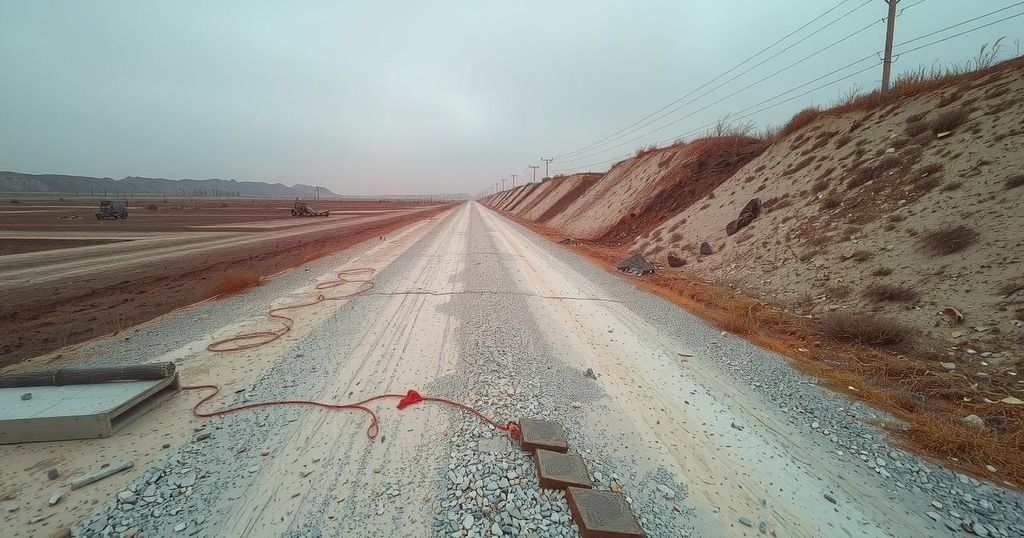Trump Administration’s Controversial Deportation of Venezuelans to El Salvador

The Trump administration has deported Venezuelans to El Salvador, despite a court order opposing such actions. This initiative aims to utilize the Alien Enemies Act for swift deportations, particularly targeting gang affiliations. Legal challenges persist, questioning the administration’s compliance with judicial mandates.
The Trump administration has commenced the deportation of hundreds of Venezuelans, purportedly gang members, to a prison in El Salvador. This action occurred despite a federal judge’s order that sought to halt such deportations. Officials from the White House have expressed their satisfaction with this transfer, amidst ongoing legal debates regarding the implications of a new executive order intended to facilitate expeditious deportations.
El Salvador’s President, Nayib Bukele, showcased footage on social media, depicting handcuffed individuals being escorted from a plane to a prison facility. The film displayed prison personnel shaving the heads of the deportees, underscoring the controversial nature of these transfers amidst their initiation by the Trump administration.
The administration’s strategy involves utilizing the Alien Enemies Act of 1798 to swiftly apprehend and deport individuals identified as associates of the Tren de Aragua gang, minimizing the legal proceedings typically associated with immigration. This agreement with El Salvador has raised concerns about legality and human rights.
Judicial scrutiny intensified after U.S. District Court Judge James Boasberg issued a temporary restraining order to prevent the deportation of certain Venezuelan immigrants. Notably, the timing of the flights has raised questions regarding the administration’s potential disregard for the court’s mandate, as they proceeded shortly after the judge’s order.
In defense of these actions, Secretary of State Marco Rubio noted the return of dangerous leaders of the MS-13 gang to El Salvador and claimed that more than 250 individuals linked to Tren de Aragua had also been transferred. He asserted that El Salvador had consented to accommodate these deported individuals in their facilities at a reasonable cost.
In summary, the deployment of Venezuelan deportees to El Salvador under controversial legal circumstances has prompted significant discussions about immigration laws and judicial oversight. The Trump administration’s actions, however, have been met with resistance from both domestic courts and international entities. The ongoing legal battles highlight the complexities surrounding immigration enforcement and human rights considerations in such cases.
Original Source: www.nwaonline.com








